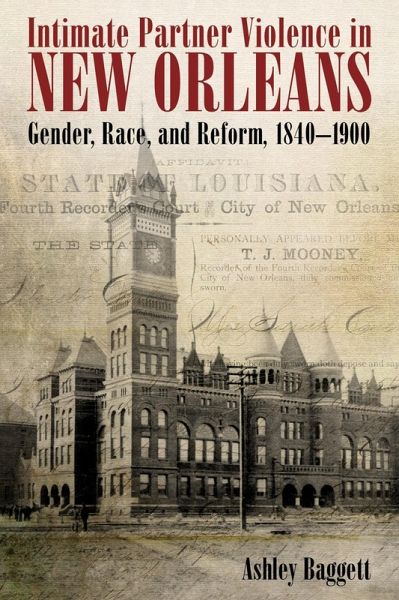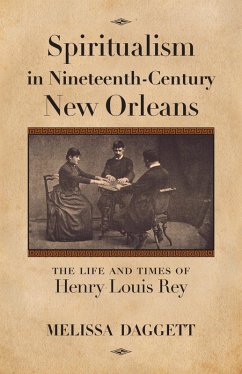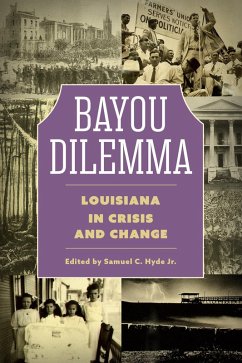
Intimate Partner Violence in New Orleans (eBook, ePUB)
Gender, Race, and Reform, 1840-1900
Versandkostenfrei!
Sofort per Download lieferbar
16,95 €
inkl. MwSt.
Weitere Ausgaben:

PAYBACK Punkte
8 °P sammeln!
Ashley Baggett uncovers the voices of abused women who utilized the legal system in New Orleans to address their grievances from the antebellum era to the end of the nineteenth century. Poring over 26,000 records, Baggett analyzes 421 criminal cases involving intimate partner violence-physical or emotional abuse of a partner in a romantic relationship-revealing a significant demand among women, the community, and the courts for reform in the postbellum decades. Before the Civil War, some challenges and limits to the male privilege of chastisement existed, but the gendered power structure and t...
Ashley Baggett uncovers the voices of abused women who utilized the legal system in New Orleans to address their grievances from the antebellum era to the end of the nineteenth century. Poring over 26,000 records, Baggett analyzes 421 criminal cases involving intimate partner violence-physical or emotional abuse of a partner in a romantic relationship-revealing a significant demand among women, the community, and the courts for reform in the postbellum decades. Before the Civil War, some challenges and limits to the male privilege of chastisement existed, but the gendered power structure and the veil of privacy for families in the courts largely shielded abusers from criminal prosecution. However, the war upended gender expectations and increased female autonomy, leading to the demand for and brief recognition of women's right to be free from violence. Baggett demonstrates how postbellum decades offered a fleeting opportunity for change before the gender and racial expectations hardened with the rise of Jim Crow. Her findings reveal previously unseen dimensions of women's lives both inside and outside legal marriage and women's attempts to renegotiate power in relationships. Highlighting the lived experiences of these women, Baggett tracks how gender, race, and location worked together to define and redefine gender expectations and legal rights. Moreover, she demonstrates recognition of women's legal personhood as well as differences between northern and southern states' trajectories in response to intimate partner violence during the nineteenth century.
Dieser Download kann aus rechtlichen Gründen nur mit Rechnungsadresse in A, D ausgeliefert werden.













